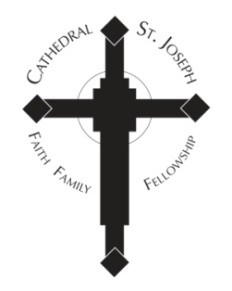Sixth Grade Curriculum
Math- Saxon Math
Cathedral School's math program is distinctive in both its format and scope. Using Saxon Math throughout all grade levels, students in grades K-2 experience instruction in fundamental concepts. As each student enters grade 3, he/she, using placement test scores, previous teacher's input, is paced in the appropriate math level. This allows for differentiated instruction for all students. Students at Cathedral have the opportunity to move through the math curriculum at their own pace, and many will complete courses in high school level Algebra 1 and 2 prior to graduation. Care is taken to ensure that students are challenged and yet comfortable in their math placements.
Intro to Pre-Algebra
- Review of previously learned material
- Relating use of math to real-life problems; money addition, subtraction
- Addition, subtraction, multiplication, and division with decimals
- Addition, subtraction, multiplication, and division with fractions
- Computations with unknown numbers, in addition, subtraction, multiplication and division
- Dealing with percentages and relating them to fractions and decimal numbers
- Introduction to graphing and coordinate planes
- Introduction to probabilities
Science - Earth Science
- Minerals
- Rock Cycle
- Earth’s Layers
- Atmosphere
- Weather
- Water Cycle
- Lunar Phases
- Solar System
Study Trips
IBUILD - students engage in activities involving structural, mechanical, and civil engineering.
MO West Planetarium
ELA (English Language Arts)
- Writing Mechanics
- Story Elements
- Scope and Sequence
Religion
- Old Testament
- Students learn the 12 major time periods of the Old Testament in chronological order beginning with creation and continuing through the post-exile rule of the Prussians.
- Liturgical Year
- Mysteries of the Rosary
- Jesus’ birth, life, death, and resurrection
Grade 6 World History
A Study of ancient history up to and including the Renaissance.
Students create cave art, write messages in cuneiform, hieroglyphics, and Greek, make mummies, learn about Greek and Roman culture, including mythology.
Using Junior Scholastic magazines enables students to stay current with world affairs, improves map reading skills and interpretation of the technical and expository writing.
The annual Geography Immersion project allows each class to focus on a single foreign country during this 2-week project. All Cathedral students then tour the nations as presenters explain customs, culture, and geography. Elaborate decor, food samples, and native dress completes the experience.

